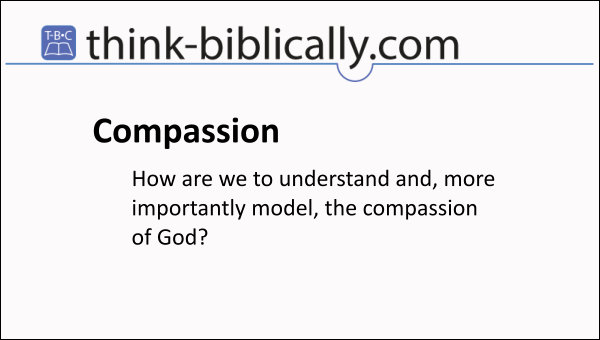By Tyson Thorne

Solomon wrote that there is a time for everything (Ecclesiastes 3.1), and at the beginning of Jonah chapter 4 God is experiencing a time of righteous anger toward the people of Nineveh — and for good reason. Their wickedness had no boundaries. Murder was so common in Nineveh that bodies were often left where they fell, their bodies decomposing in the streets, being eaten by birds. The ruthlessness they showed to their fellow citizens paled in comparison to how they treated their enemies, and Israel was an enemy. God had had enough and his mercy turned toward justice.
Even in his righteous anger, however, God was willing to give the people one last chance. That chance took the form of a deadline; he gave them 40 days to either repent or prepare to die. Regardless of their evils, God's judgment still made room for compassion. And this is exactly what worried Jonah. At the beginning of chapter 4 Jonah prays to Elohim and in that prayer makes a theological observation, "you are gracious and compassionate, slow to anger and abounding in mercy" (4.2). Interestingly, Jonah recognizes God's compassion toward the Gentile nation but doesn't see how he himself was testing God's grace and mercy. An important lesson for us all.
A question remains, however. Why did God feel compassion for these people? According to dictionary.com "compassion" means" a feeling of deep sympathy and sorrow for another who is stricken by misfortune, accompanied by a strong desire to alleviate the suffering." In what way were the Ninevites stricken with misfortune? The Bible is silent on the subject, but we can make an educated guess. Where evil abounds, the powers of darkness collect and rule. It is likely that the people of that great city were oppressed by demonic forces. This idea has merit, explaining not only God's anger toward them as a people, but also Jonah's hatred. It may also explain why it tool jonah three days to cross though the city when most people could do it one; the powers of darkness would want to slow the progress of the prophet of Elohim.
In Jonah's day, God's compassion was witnessed through his mighty acts and through the mercies of his servants. This is not unlike today, wherein God uses the church universal to show care and compassion to those less fortunate. Through compassion holiness flows from the child of God and to the object of our concern. While the circumstances of one's suffering might remain, it's oppressive nature is changed, healed even, by the compassion of man and God. This attribute of God, of course, is revealed at its greatest level in the second member of the Trinity.
Then Jesus went throughout all the towns and villages, teaching in their synagogues, preaching the good news of the kingdom, and healing every kind of disease and sickness. When he saw the crowds, he had compassion on them because they were bewildered and helpless, like sheep without a shepherd. Then he said to his disciples, “The harvest is plentiful, but the workers are few. Therefore ask the Lord of the harvest to send out workers into his harvest.” (Matthew 9.35-38)
